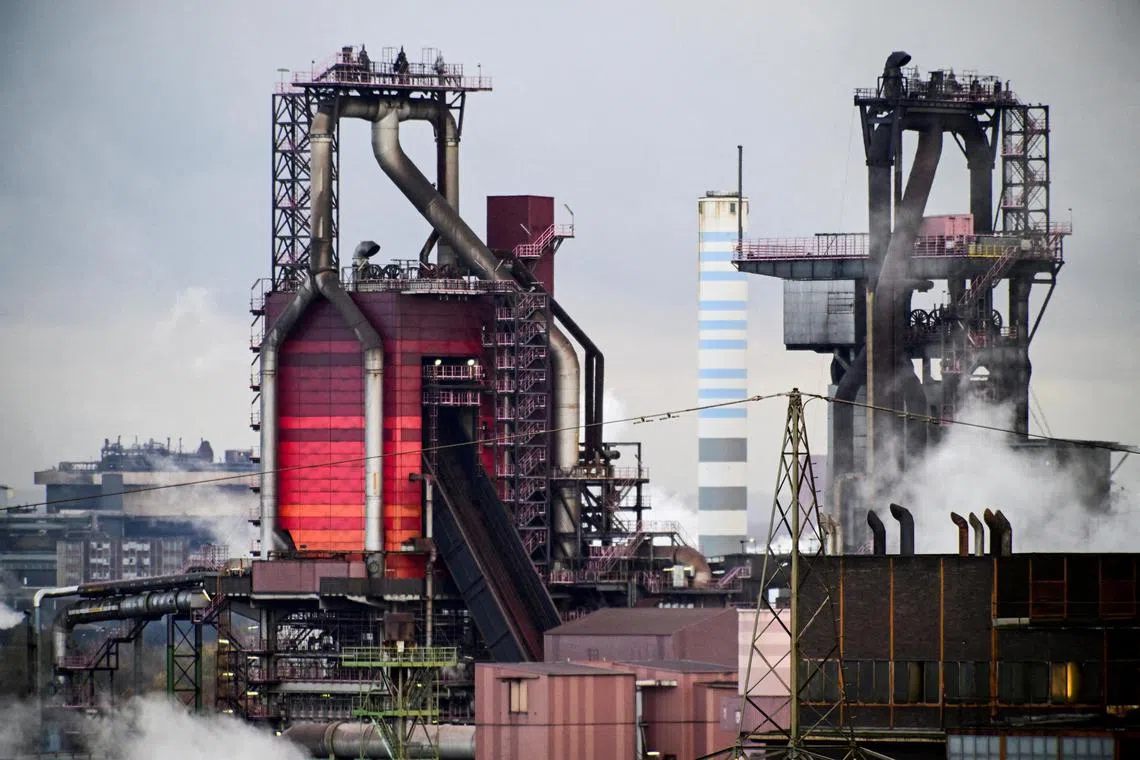Steelmaker ThyssenKrupp to slash 11,000 jobs in Germany
Sign up now: Get ST's newsletters delivered to your inbox

ThyssenKrupp, the largest steelmaker in Germany, will slash up to 11,000 jobs by 2030, as the country struggles to overcome economic weakness.
PHOTO: REUTERS
BERLIN – ThyssenKrupp, the largest steelmaker in Germany, said on Nov 25 that it would eliminate up to 11,000 jobs by 2030, a decision that comes as the country struggles to overcome economic weakness that has hindered growth for nearly two years.
The overhaul is aimed at returning ThyssenKrupp to profitability in the face of pressure from Asian competitors and high energy prices. Compounding the challenges, US President-elect Donald Trump has threatened to impose tariffs on all goods imported to the United States. ThyssenKrupp was among those hurt by the tariffs Trump imposed on steel and aluminium during his first term in office.
ThyssenKrupp said that it would reduce the amount of steel it produced each year down to no more than 10 million US tonnes, from the current level, 12.6 million US tonnes, which would allow it to eliminate 5,000 jobs. Another 6,000 jobs will be cut through the sale of business activities or turning to external providers, the company said without elaborating.
“Urgent measures are required to improve ThyssenKrupp Steel’s own productivity and operating efficiency and to achieve a competitive cost level,” the company said in a statement.
ThyssenKrupp reduced the value of its steel division by €1 billion (S$1.4 billion), after posting a yearly net loss of €1.4 billion. The company has been struggling for years to decarbonise its steel production, as the price of powering its existing coking plants has soared.
Germany, Europe’s largest economy, has not had significant growth in the past two years. On Nov 22, the economy recorded 0.1 per cent growth from July to September, but it was forecast to contract over the entire year. Economists do not expect to see a return to growth in 2025, unless the government can make significant changes quickly.
Dozens of companies have announced plans over the past few months to reduce their workforces in Germany. On Nov 22, auto supplier Bosch said it would cut 5,500 jobs beginning in 2027. Ford Motor said on Nov 20 it would eliminate 4,000 jobs in Europe, primarily in Germany.
Workers at Volkswagen, Germany’s biggest automaker, are planning to begin staging warning strikes in the coming days, as they fight management plans to reduce their numbers and close up to three of the company’s 10 factories in Germany. In October, Volkswagen reported a 42 per cent drop in quarterly profit and warned of an “urgent need” to cut costs amid growing competition from Chinese automakers. NYTIMES


